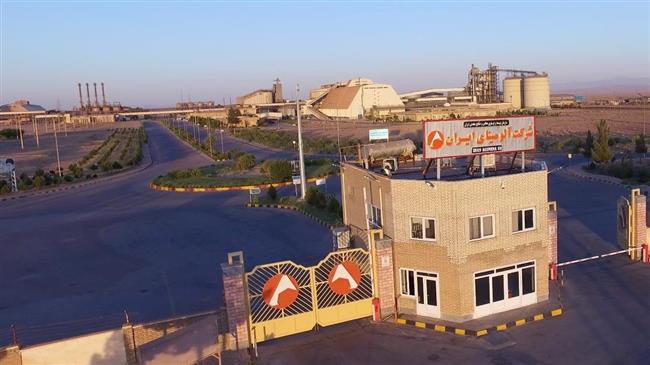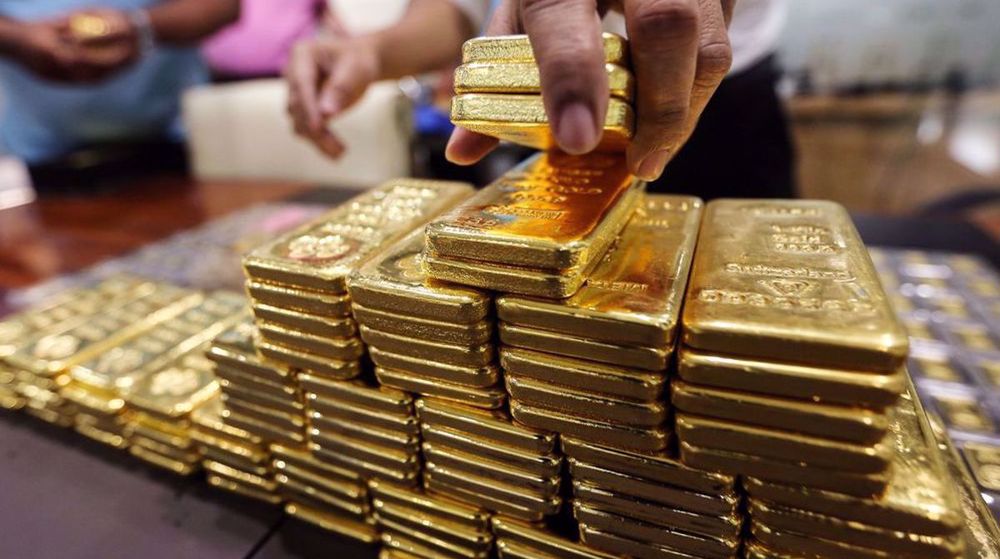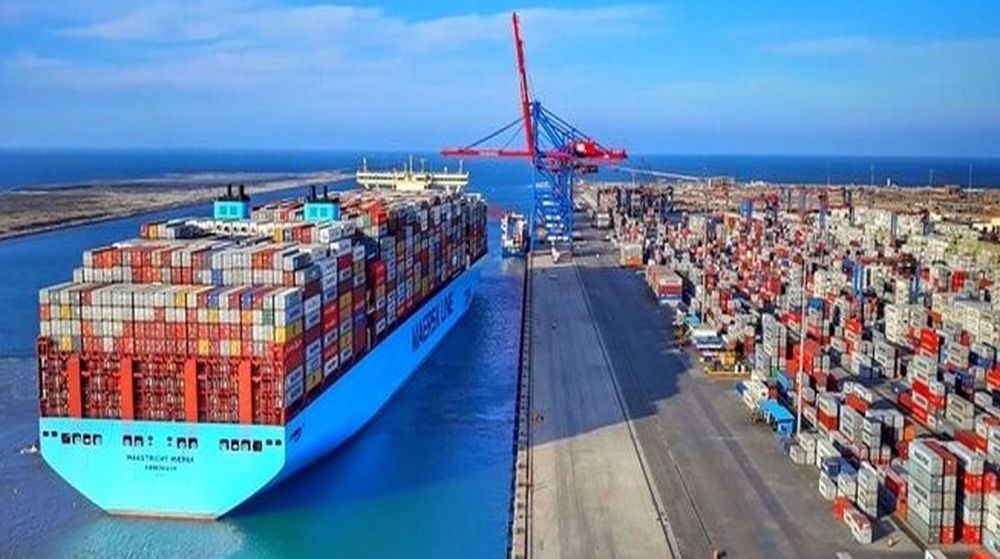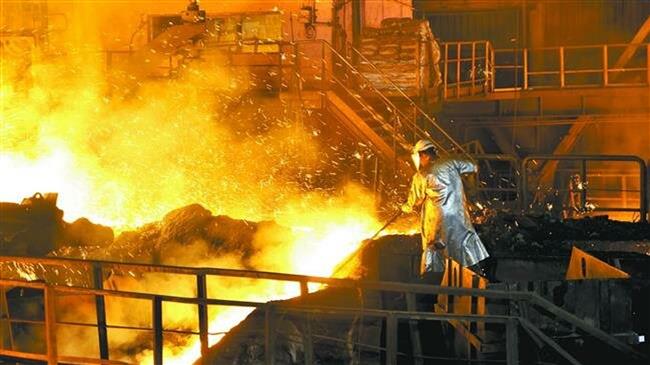Iran opens first alumina plant in blow to US sanctions
Iran has brought online its first alumina refinery, marking a milestone in its production of the strategic metal and cushioning blows from unilateral US sanctions.
The first phase of the Jajarm refinery commenced operation with a capacity to produce 40,000 tonnes per year of alumina which is the key metallic input derived from bauxite used to smelt aluminum.
Jajarm in North Khorasan province holds Iran’s largest deposit of bauxite - the raw material used to make aluminum.
President Hassan Rouhani, who is touring the northeastern province, watched the inauguration via a video conference. “The government is honored to press ahead on the path of development in the face of sanctions,” he said.

Last August, the US re-enacted its secondary sanctions against Iran’s steel and aluminum products, gold and precious metals, graphite and coal to choke off the country’s vital revenue streams.
Further sanctions were imposed in November to target its lifelines in the oil, energy and shipping sectors.
Aluminum is a key metal used in transportation, packaging, construction, electrical industry, consumer durables and machinery. It is a vital component in manufacturing cars and airplanes.
While Iran does not have a viable aviation industry, it has a sprawling automotive sector and a potent defense infrastructure.
The inauguration is highly significant because it cuts Iran’s reliance on alumina imports, mostly from key Asian producers such as India and China.
The alumina refinery in Jajarm is built to ultimately reach a production plateau of 280,000 tonnes per year. The second phase is about to add another 110,000 tonnes of capacity to Iran’s alumina output.
Aluminum production is headed for a leap when a new major smelter comes online by the end of the current Persian year in March 2020, Minister of Industry, Mine and Trade Reza Rahmani said on Sunday.
The South Aluminum Corp (Salco) smelter, being built at a cost of $1.2 billion in the city of Lamerd near the Persian Gulf, is about to add 300,000 tonnes per year of new capacity.
“By the next two years, Iran’s aluminum production capacity will reach 800,000 tonnes. With the commissioning of the South Aluminum Corp, this goal can be achieved sooner,” IRNA quoted Rahmani as saying.
Iranian Aluminum Company (Iralco) in the central city of Arak and Al Mahdi Aluminum Complex in Bandar Abbas are currently the two operational smelters.
The country’s expansion includes building five new plants and raising aluminum output to 1.5 million tonnes per year by 2025.
To reach this capacity, there is need for 3 million tonnes of alumina and more than 6 million tonnes of bauxite, Iranian officials have said.
In July 2015, Iran revived a deal after a gap of 25 years to extract bauxite in Guinea and ship it for use in Iranian smelters. Guinea sits on the world’s largest reserves of bauxite estimated around 40 billion tonnes.
Previous estimates by IMIDRO, the state-owned Iranian Mines and Mining, Industries, Development and Renovation Organization, have pegged investment needed in aluminum development plans at $11 billion.
China Nonferrous Metal Industry’s Foreign Engineering and Construction Company (NFC), which carries out expansion on Jajarm Alumina, also builds Salco. The latter project also includes construction of a deep water port.
Persian Gulf Alumina is already in the works to set up a 1.6 million-tonne capacity in the Parsian Energy Intensive Industrial Special Economic Zone in Asaluyeh.
Kaveh Khouzestan Aluminum Company (Kalco) smelter with a capacity of 375,000 tonnes per year is another plant to be built in Masjed Soleyman close to the Persian Gulf at a cost of around $1 billion.
The projects as well as other expansion plans in Iran’s resources industry, however, face headwinds of the US sanctions.
Before the sanctions came into force, officials had said Iran was seeking $50 billion in investment for its mining industries and had signed partnership agreements with several European and Asian miners, manufacturers and banks.
Foremost, Iran seeks to boost steel production to 55 million tonnes by 2025. It also plans to increase its copper cathode production to 800,000 tonnes a year.
“The mineral revolution and the mineral industry are among our programs,” Rouhani said on Sunday. “This year, there will be a major launch every month in the field of large industries and mining.”
Jan. 15: ‘Axis of Resistance’ operations against Israeli occupation
VIDEO | US fires: Criticism mounts over govt. failure to respond
VIDEO | Fears, hope in Gaza amid intensified ceasefire efforts
VIDEO | Press TV's news headlines
Hamas: Ceasefire agreement result of steadfastness, resistance in Gaza over 15 months
Hamas thanks Iran, Resistance Front following achievement of ceasefire in Gaza
'Capitulation': Israeli officials and media concede Gaza defeat as truce unfolds
'Gaza has won': Social media users react to ceasefire with mix of relief, joy
















 This makes it easy to access the Press TV website
This makes it easy to access the Press TV website